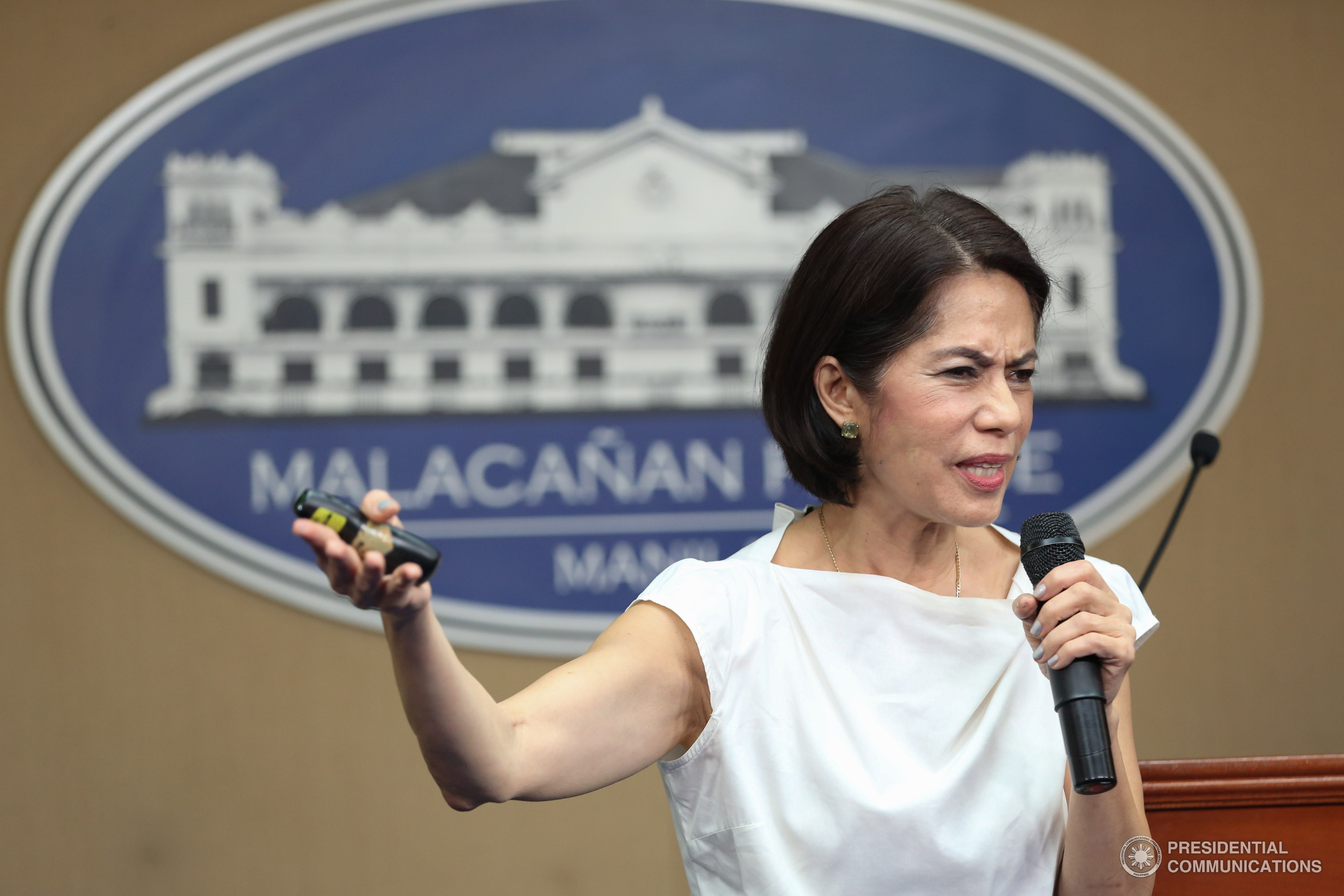Breaking
Livelihood projects for communities affected by mine closures underway

The Department of Environment and Natural Resources (DENR) assured on Tuesday that livelihood projects are being put in place to help communities directly affected by the closure of 23 mining companies that failed the industry-wide audit conducted by the agency. (PCOO photo)
MANILA—The Department of Environment and Natural Resources (DENR) assured on Tuesday that livelihood projects are being put in place to help communities directly affected by the closure of 23 mining companies that failed the industry-wide audit conducted by the agency.
In a press conference held Tuesday, DENR Secretary Gina Lopez said that a number of government agencies have participated in a planning workshop organized by the DENR in Butuan City to come up with a package of livelihood projects for the affected mine workers in the provinces of Dinagat Island, Surigao del Sur and Surigao del Norte.
“Sa green economy, whether or not we’re there, the government goes there or wala … kaya na nila sa sarili nila. Yan ang dapat. This is the very key important point that I want everyone needs to know that by taking care of the environment, doon manggagaling ang pakinabang ng lahat,” Lopez said.
DENR Undersecretary for Field Operations Philip Camara identified the livelihood projects crafted by 11 participating government agencies to include revegetation of mined-out areas, biochar production and community enterprise initiatives.
He said the re-vegetation of mined out areas has the potential of generating of up to 1,000 livelihood opportunities for mining workers for every 200 hectares, and yield around PHP7,000 monthly income per household, which is the same amount as the average salary of a mine worker.
He also said that mining communities could turn agricultural wastes into biochar or charcoal briquette — a type of charcoal that is produced by burning only a small amount of oxygen, thus enabling carbon to be absorbed by plants and prevent it from accumulating in the atmosphere.
“Biochar has strong potential to provide alternative livelihood to mine communities given that the Philippines consume about 22 million cubic meters of wood for fuel and charcoal,” he said.
“These alternatives not only provide high-value jobs, they also multiply into agriculture,” Camara said, adding that the re-vegetation process starts from rehabilitating the soil so it can grow plants and trees to boost agriculture.
To prepare them into becoming ecotourism sites, the DENR will create community enterprises in mining affected areas within the next three to six months.
Other livelihood activities that the DENR plans to undertake to assist displaced mining workers include establishment of plant nurseries, dredge rivers, improve agricultural lands through biochar, introduce bamboo and napier grass as agricultural crops, raise poultry and livestock and set up priority sites for the Enhanced National Greening Program.
Camara said the livelihood projects being put in place by the DENR are geared toward “creating a local economy that works for the local people.”
Among the agencies that participated in the planning workshop were the Department of Labor and Employment, Technical Education and Skills Development Authority, Department of Agriculture, Department of Science and Technology, Bureau of Fisheries and Aquatic Resources, Department of Interior and Local Government, Department of Trade and Industry, Philippine Coconut Authority, Department of Public Works and Highways, and the Department of Social Welfare and Development.





















